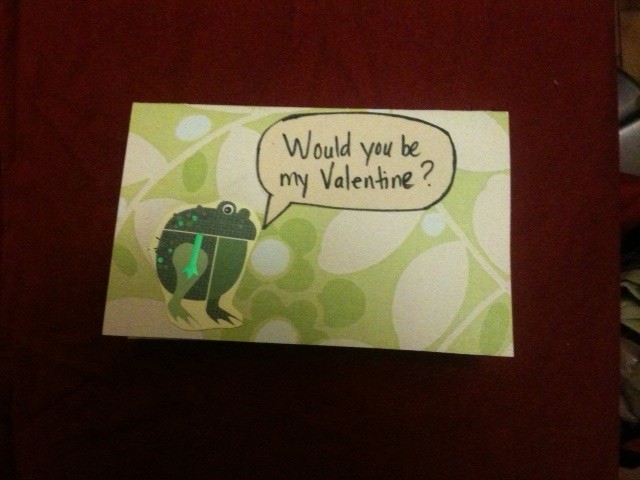 You may be asking yourself, how does one get sucked in to a cult?
You may be asking yourself, how does one get sucked in to a cult?
First let me address a myth: only drug addicts and broken loners who have nothing join cults. Untrue. My ex “classmates” were intelligent, energetic, fun, loving and sensitive people with friends and family. Many attended, graduated from, or even taught in prestigious universities – Harvard, M.I.T, Yale, Tufts, etc.
Cult indoctrination is an emotional trap having nothing to do with intellect.
“School” indoctrinates “new students” insidiously and slowly. It “aims” to recruit those who seek answers to big life questions, are plagued by longing and a nagging dissatisfaction, and driven to derive deeper meaning and purpose. It calls this psychology of longing “magnetic center”.
School’s astute understanding of this ache enables it to seduce with suggested promises of answers, directions, focus and purpose. It does, in fact, deliver on this promise, but the focus, purpose and answers don’t include personal evolution; these elements do feed the New York branch’s financial coiffeurs so Sharon can continue to live in her Park Plaza condo. I’m sure that school’s $350 monthly tuition doesn’t hurt Robert’s bank accounts either.
“School” has survived almost four decades, over 3000 miles, media investigations and countless numbers of angry ex-students who intend to bring it down. Its student body includes many accomplished and intelligent people. This informs me that, in general, people need and ache for connection to something spiritual and our culture lacks a spiritual center. This glaring hole creates a spiritual vacuum that one can exploit, if so inclined. And over the decades, “school’s” recruitment efforts have been refined into one finely-tuned, cleverly insincere, machine.
Step One: Target the Discontent and Constantly Questing (a broken heart helps, too)
In spring 2006, rain saturated Boston; every day I would step off the train, walk away from the station, and be doused in the latest deluge. I was drenched inside and out.
Jeff and I had started dating that winter. I found him kooky, endearing, off-kilter and fascinating. But his behavior proved erratic and strange sometimes. At one point he withdrew without explanation — avoiding my calls. Somehow, we regrouped and survived disappearing act, round one; but round two began, and his behavior hit a new strangeness level; he filled my email inbox with a steady stream of his complaints. I wrote him back: Don’t email me; if you’ve something to say, call. The emails kept coming. The messages got stranger, more pressured, meaner and more accusatory. I blocked him from my inbox, put pen to paper and wrote four sentences:
I need to cut you out of my life. Don’t contact me.
Sam has your stuff. If you want it back, call him.
I put the letter in the mail and the rain clouds burst.
Step Two: Grocery-Store Encounter
Shortly before that letter and before the email onslaught, I had attempted one last sane conversation.
“If we are going to break up, let’s at least be grown up about it; let’s have a summit,” I had told Jeff. “I’ll pick up some food. Come over, we’ll talk.”
The night of the planned summit, I stopped at a Whole Foods. I stood in line, stewing over my failures – 40 years old, temping for $15/hour, another failed relationship, renting a room from my friend, blah, blah, blah.
I was vaguely aware of the family in line behind me. The mom, a pretty, dark-haired woman, pointed to a magazine cover and said to her daughter, “What to you think of that?” Her daughter eyeballed the cover — a photograph of a Zen garden — and said something I didn’t hear. Then the woman asked me, “What do you think?”
It seemed a strange question. But the garden looked green and peaceful; beautiful and serene. Perfect.
“It looks awesome,” I said, wistfully, I’m sure. But inside something else said, “What does she want?”
A whirlwind of conversation followed. Other customers waited behind us; the cashier frantically rang up items over our blather, so when Lisa said, “We should get together.” I said, “Great.” I gave her my phone number.
She left messages persistently and patiently — undeterred by my slow response. I was busy falling apart, after all. I was busy getting my heart put through the shredder. I was busy feeling old and lost and crappy. I was busy weeping with the sky.
One day the phone rang; I was home. We scheduled a “meeting”.
Step Three: Five meetings
After being in school two years, it tapped me, along with others, to “go out and make friends”. At that time it deemed me privy to it’s four-step recruitment machine:
1) Select your target
2) Create the initial encounter (illustrated above)
3) Meet five times
4) Introduce to Robert
Let’s say you are the recruiter and you need go to the grocery store. While waiting in line ask yourself whether the person in front you is longing for “freedom”. Ask her/him a question. Strike up a conversation, but don’t linger! Establish contact and rapport, than say something like, “I have to run, but I’ve really enjoyed talking to you! We should get together. Can I get your phone number?” Make it fast, friendly and upbeat; don’t give your new “friend” time to question. Remember, you may be doing this poor soul-less, sleep-walking man or woman an enormous favor by introducing him/her to school. Just think about how “school improved your life!” Remember, too, that someone was once awake enough to do this favor for you!
(Please don’t mention the $350 monthly tuition, how school demands increase over time, and that how you no longer have time for friends and family … in fact, do not mention “school”).
When asked for your contact information, give a pre-established “answer phone” (a voicemail). Never, “for your own safety”, give out personal information – a home number, a cell phone number, a last name.
Pursue patiently, until you can set up a first meeting. See what you can learn about the person – is he or she employed? What does he or she do for work? How much money does he or she make? Is he or she married? Does he or she have children? Does he or she have a longing, a wondering about life — or a “magnetic center”. Refrain from talking about yourself, as much as possible “for your own safety and privacy.”
Meet with said recruit five times. Oh, and by the way, you can (finally!) bring up the unspeakable – the secret esoteric ideas we discuss in “class”. See if it sparks interest; if it does schedule a meeting with the new recruit and a “teacher” or “older student”. Your more experienced colleague will establish whether this person is appropriate for “school”. “School” does not want any old shattered soul to walk through the hallowed halls. They must have an income, or the possibility for an income; if they don’t have a significant income, they must have something else to offer. (Oh, by the way, if said recruit works for law enforcement, military, or the media, your more experienced colleague will reject them.)
On the fifth meeting, introduce the new recruit to Robert. He will make the final call.
Lisa and I walked in Fresh Pond, drank coffee at Starbucks, took in art at the MFA, drank more coffee at the 1369 in Cambridge, ate lunch at Whole Foods and finally she introduced me to Robert, at Pete’s coffee in Brookline. Lisa asked me a lot of questions, which I answered. She listened and told me almost nothing about herself. But my need to talk and for validation overrode any suspicions dancing around in me po’ brain. It was unusual for me to yak so much. Historically, I would listen and ask questions.
One day I said, “I don’t know what it is about you, Lisa. I talk so much about myself.”
“That’s good, isn’t it?” she said. “It’s different.”
“What about you?” I asked. “How did you meet your husband?”
She shifted in her chair, and looked down. “We met in an acting class. It’s hard to explain.”
She changed the subject. Later, I would learn that many couples in school meet in “an acting class”.
But Lisa had a gentle presence and a great sense of humor. We laughed a lot and discussed fascinating topics like how the pyramids in Egypt came to be and other such global mysteries. She encouraged me to talk about my dissatisfaction with life. I felt safe to do so – she seemed to understand my dismay, with myself, and my life, without judging it.
“Is this all there is?” I would say. “There has to be more.”
“How would you like to meet other people who ponder these questions and offer new ideas?” she eventually asked me.
She explained that she got together with friends on Tuesday and Thursday nights to discuss life’s big questions, to ponder ideas. It could be fun, she said. They laugh a lot. People come and go, she indicated. This group, she said, provides ideas, instruction, if you will, on how to live. Both my suspicion and curiosity were peaked. But hope overran all other emotions – maybe, just maybe, I’ve finally found something that can help me break out of a perceived lifelong pattern of failure.
I want to interrupt myself here before I paint myself to be the stereotypical cult-joiner (i.e. loser with nothing). At the time, I had plenty of friends, loving family, passions in the arts and music and degrees from Harvard Extension School, Lesley University and Hiram College. I was, however, struggling financially and longing for a true and loving partner. I saw these struggles as “a lifelong pattern of failure”. Plagued by a pervasive self doubt, I was the perfect target for “school” — a win for an ambitious cult-recruiter.
“Sure, why not.” I replied.
She then informed me of the first requirement out of many (i.e. deceptions) to follow.
“It’s very important that you not tell anyone about this. It’s private, just for you.”
Step Four: Meeting Robert
Rain fell in sheets and buckets, again, when I met Lisa and a slightly round, very tan, bearded man named Robert at Pete’s Coffee in Brookline. I commented on the steady deluge hitting Boston that spring. Robert replied, “It has been said that raindrops are angel’s tears, and that the angels are crying.”
Since I’d been crying the entire spring, I was down with the idea of crying with the angels. Let the magic begin!
The conversation that followed I recall only vaguely; the feelings I had stand out clearly — confused, hopeful, curious and excited. Robert talked about how each human (in purest form) is an “essence” visiting earth from the “starry world” – earth is not home. We journey here to learn something. As an idealistic dreamer who tends to feel befuddled by the world and current society that idea more than resonated with me. I could hear the angel voices rising as the clouds opened up – finally! I’ve met others who also share this befuddlement. Maybe there is indeed some truth to my lifelong sense of not belonging!
He presented other ideas that confused me and I kept asking him “What do you mean?” He finally said, “Well, I’m trying to tell you.” I realized that his entire rap was an introduction and exposition on ideas, and that (unable to take it all in) I hadn’t really been listening. Upon reflection, I can see that he was outlining the “school” experience to come, should I choose to accept the mission.
We also discussed an experience I had with the Church of Scientology – I joined “the church’s” post- Hurricane Katrina disaster relief effort and traveled to Mississippi with them. He got agitated while talking about it, saying, “They don’t get it.” But then he stopped himself. I’d been joking about my Scientology trip with Lisa in previous “meetings”, so she and I were laughing about something. But Robert, his face stern, dismissed the conversation abruptly, as though swatting away a fly. He changed the subject; we followed his lead.
Eventually, he asked me – as had Lisa – whether I’d like to try out this free five-week experiment called “school”.
“Does it have another name?” I asked.
“No just school.” He replied with a smile.
“Where do we meet?” I asked.
“We’ll let you know.” He replied.
“Is there a cost?” I asked.
“Look, if you decide to continue after the five-week experiment there’s a tuition fee. It really depends on each student,” he said. “We’ve never turned anyone away because of money.”
“Ok,” I told him. “I’ll try it. All I can say is, it feels right.”
“Great. Just remember that it is critical to not to tell anyone about this. It’s private. Just for you.”
The secrecy struck me as a red light; but it was also seductive and special – “Just for me.” So I didn’t tell anyone – after all what could a five-week experiment hurt?
Chapter 3, School, Marriage, and “School Marriages”





 You may be asking yourself, how does one get sucked in to a cult?
You may be asking yourself, how does one get sucked in to a cult?


